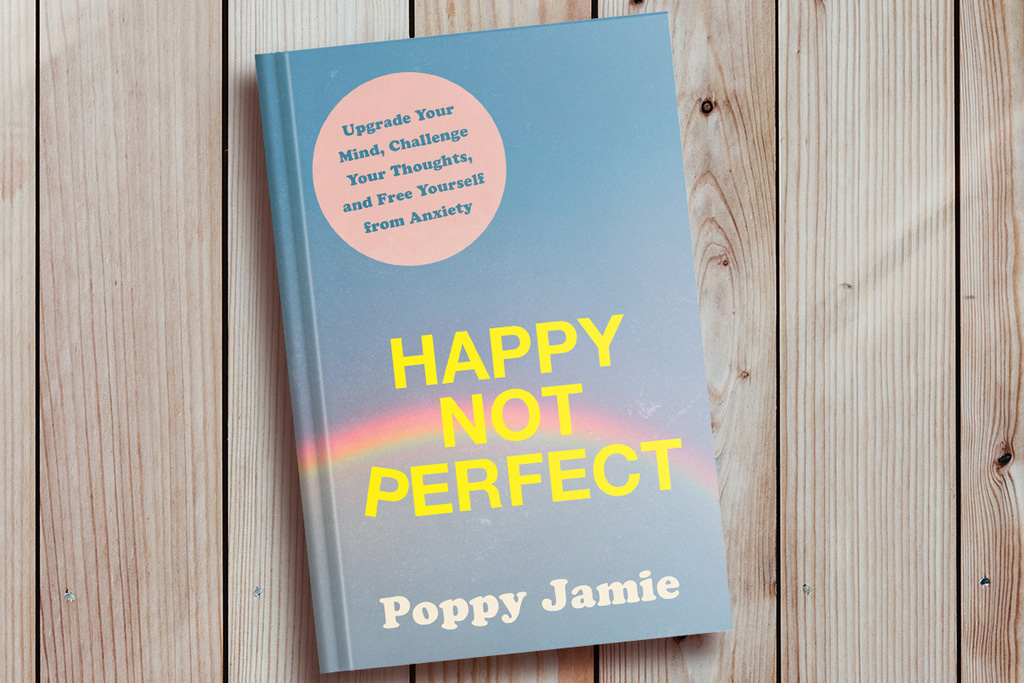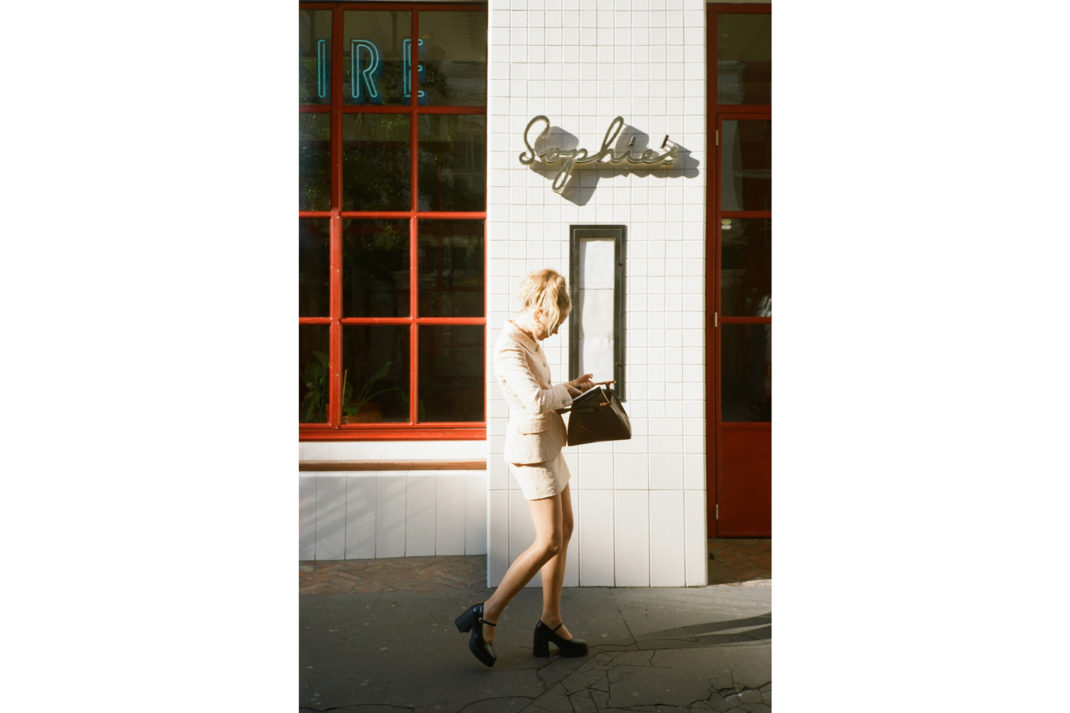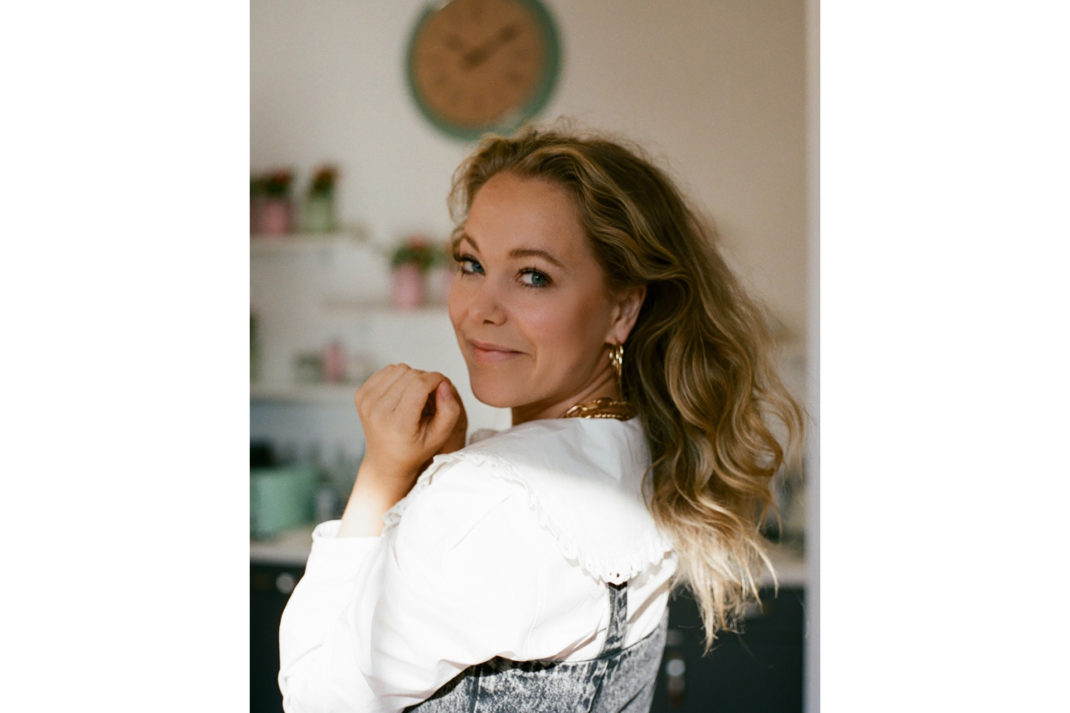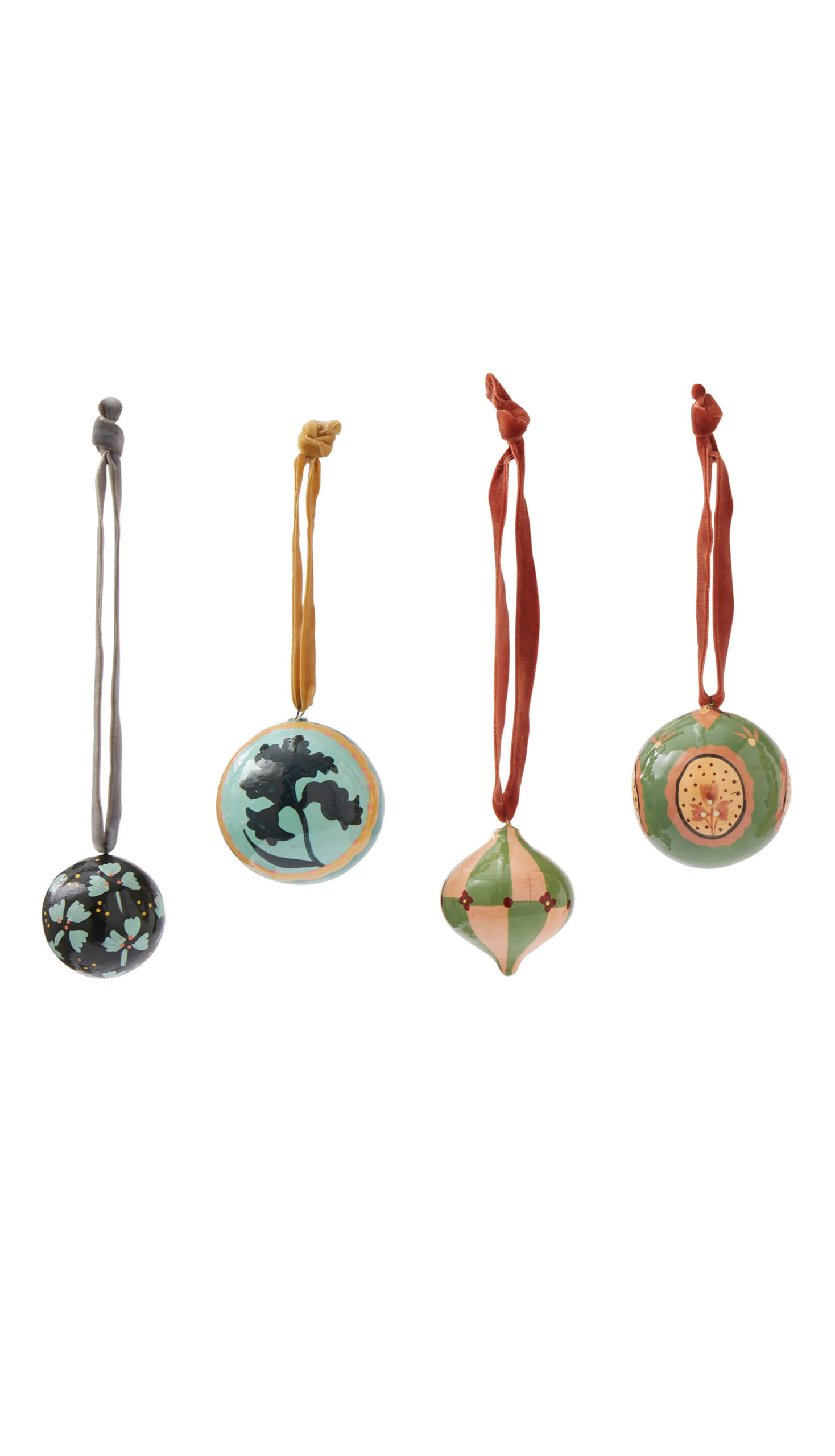Poppy Jamie On Her New Book ‘Happy Not Perfect’
By
5 years ago
'The greatest gift we can give ourselves is to learn how our mind works'
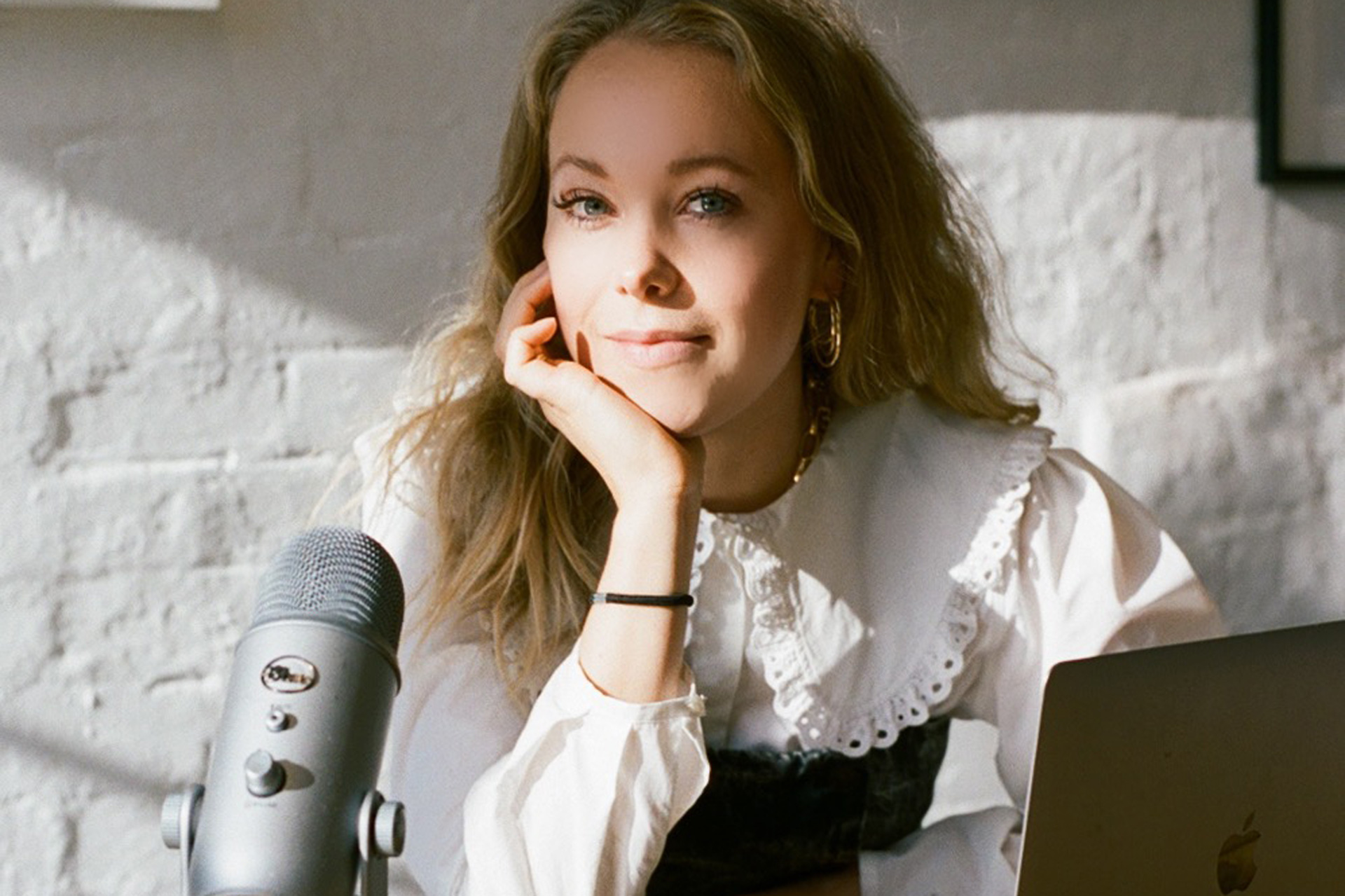
After experiencing chronic burnout at age 27, Poppy Jamie decided to address her anxieties and get to grips with what was really going on. Her award-winning mindfulness app ‘Happy Not Perfect’ and mental wellness podcast ‘Not Perfect’ have helped millions of people to reassess and improve their mental health. Now, her latest project and literary debut, Happy Not Perfect is here to help us ‘dive deeper into the psyche’ and understand our brains that little bit better.
From challenging perfectionism to battling negative thoughts, Poppy offers readers an opportunity to explore and enhance their mental health through a series of personal anecdotes, trailblazing research, and practical methods. Here, we chat to the author and founder about her four-step ‘flexible thinking’ technique, her daily rituals for a healthy mind, and her own experience with mental health struggles.
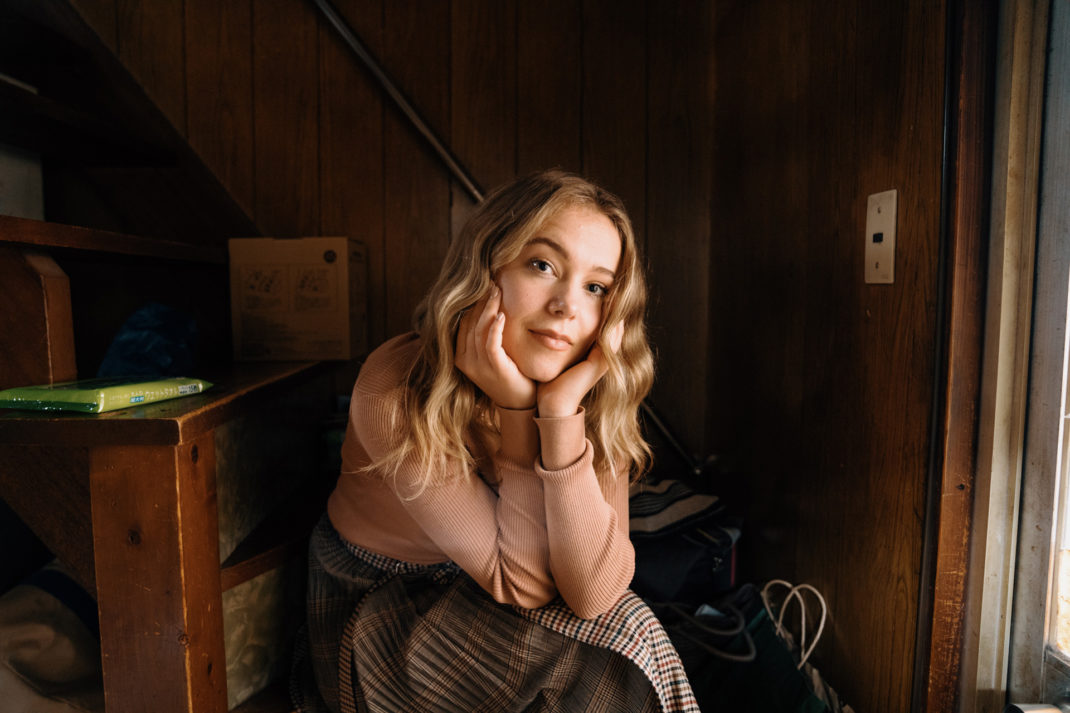
Image courtesy of @davekrugman
Q&A with Poppy Jamie
Tell us about Happy Not Perfect…
The book is really a road to help any reader understand their brain better and also learn about the flexible thinking method, which was my step-by-step path to mental freedom. I really struggled with anxiety, stress and perfectionism, and I write about this a lot in the book: that we get stuck in the same thought patterns. Some research carried out recently found that 98 per cent of our thoughts today would probably be the same as yesterday, and that really sums up the book. When everything goes wrong, how do we adapt to chaos?
What is ‘flexible thinking’?
The best way to approach ‘flexible thinking’ is to understand how stiff we are if we don’t stretch our minds. The brain loves to predict and protect – that’s what it’s wired to do. Being a flexible thinker is about understanding that your brain is always changeable. Neuroscience recently discovered neuroplasticity – the fact that we have the biological capability to change our brain at any age. This is so empowering as the conversation around mental health can feel so terrifying, because you feel like you’re stuck with all these emotions. And, actually, science proves that no one needs to be stuck, no one needs to feel like they are a slave to, or victim of, their mental health.
I really wanted to create a method to help people move out of these stuck, fixed thought patterns. Flexible thinking is about pausing before we stay in this reactionary mode – pausing to think: ‘I can always bend my mind to think about other scenarios’. It’s also about leaning in to living a life with a compassionate mindset, because we always have the choice to be kind to ourselves. Most of us are stuck in such self-critical thoughts, beating ourselves up for not being perfect, when perfect never existed in the first place.
Lockdown has had a huge effect on mental health. Any advice for those that might be feeling anxious about life after lockdown?
Humans hate uncertainty and love familiarity. So, this to our biological hardware is potentially dangerous – it feels threatening. But I believe that our purpose in life is to be able to become stronger against letting our fears rule our life, and that is a daily practice. Of course, we’re fearful. Of course, anxiety is normal. But it’s about learning strategies that help avoid letting your anxiety control your life. So, my advice for this moment in time is to pause. Sometimes we can feel that we need to rush because everybody around us is rushing, but it’s our choice whether we fall into this cultural speed. It’s about remembering that we always have a choice in how we respond to life.
The book has been branded as ‘your most personal piece of work yet’. How does it feel to share your intimate experiences?
It feels somewhat terrifying! I’d been researching the book for six years but started writing it during lockdown when I’d gone back to live with my parents (which was obviously a strange experience, being a 30-year-old woman). I accidentally found all these diary entries I wrote when I was 12 and, in a way, it absolutely broke my heart because I started to realise where my insecure thoughts had begun and how they controlled my life for almost 15 years.
It’s amazing how our psyche is so delicate when we’re growing up – we absorb everything. A lot of experiences we went through (school, teachers, friends) all shaped how we thought of ourselves, because our brain is just trying to have an understanding of reality. But if we don’t challenge the 12-year-old understandings, we can live an entire life dictated by our 12-year-old beliefs. Think about how many people believe things about themselves that are not true, all of these things that someone else made them feel. And that’s why I decided to include these diary entries, to show people that our young minds have the power to really decide how we feel about ourselves – but that they’re usually based on lies.
Can you tell us a bit about your own experience of anxiety?
At 27 I had this chronic burnout – my digestion had basically stopped because I was so stressed. I went to a nutritionist and took all these different supplements, but nothing would help. I was a workaholic, and worked almost 18 hours a day, flying between the UK and US – but my anxiety and stress were skyrocketing.
Then one day, I just totally broke and that’s when I had to go to hospital. It took me months, if not years to fully recover. When you’ve gone through chronic exhaustion, it’s so frustrating because you just can’t get your energy back. That was when I thought to myself, ‘I need to understand my brain, I need to understand what’s happening’. That’s why I truly believe the root of all change is through education. When we learn how we are wired, how our brain and body works, we have so much power – because if you don’t know how something is broken, how can you fix it?
Tips for keeping healthy and positive whilst WFH?
The flex method is really designed to help with this. The first step is about connection; it’s all about reconnecting to yourself, because the same thinking that created the stress won’t solve the stress. That’s why it’s so important to use the physical body when we are addressing our mental health. Stop thinking about the problem for a moment and go for a 20-minute run, or even just a five-minute walk – this instantly helps me re-look at how I feel in a different way. Often when we do feel stressed or anxious, we sit there thinking that we’re going to be able to think our way out of the problem – move your way out of the problem instead.
The Ultimate Guide To Working From Home
The next step is curiosity, which is about challenging your thoughts. Something that’s not true can send you into a tailspin, even when there isn’t any evidence to suggest that you should be feeling anything other than neutral about it.
The third step is making the choice to be kind towards ourselves. And then lastly, it’s commitment to action: we have to commit to facing our fears. Our past creates our present, but in this present moment, we all have a choice to redesign our future. Slowing down to make better decisions is rocket fuel to improving our daily lives and mental health.
What are your daily rituals for a healthy, happy mind?
I dance for five minutes and put on my favourite song! I also have small ‘moments’ throughout the day that I get really excited for. For example, I get really excited about making my morning coffee. When you create these moments of mini ‘celebrations’, it can really improve your day.
I always try to connect with a friend, even if it’s a five-minute call – it’s really important to stay connected with those around us. Moving the energy around your body is also critical. It sounds so basic, but it’s true. My skincare routine is another little mini mindful ‘moment’ that I love, and I like to really slow it down and take care in massaging my skin and releasing oxytocin.
Another tip is making sure to get enough daylight. Our body needs daylight for vitamin D – it’s absolutely essential in supporting our happiness. Lastly, get a good night’s sleep. To have good mental health requires a lot of energy. If you haven’t slept well, your mental health is going to suffer.
What are the key things you would like readers to take from Happy Not Perfect?
To know that you can always change your brain at any age – no one needs to feel stuck with their mental health. And also, that the greatest gift we can give ourselves is to learn how our mind works. The Ancient Greeks said, ‘know thyself’. Centuries later, I think it’s still the best wisdom we’ve ever been given.
Happy Not Perfect: Upgrade Your Mind, Challenge Your Thoughts and Free Yourself From Anxiety, Hodder & Stoughton, £14.99, waterstones.com
Best Meditation & Wellness Retreats in the UK / Wellness Trends 2021




